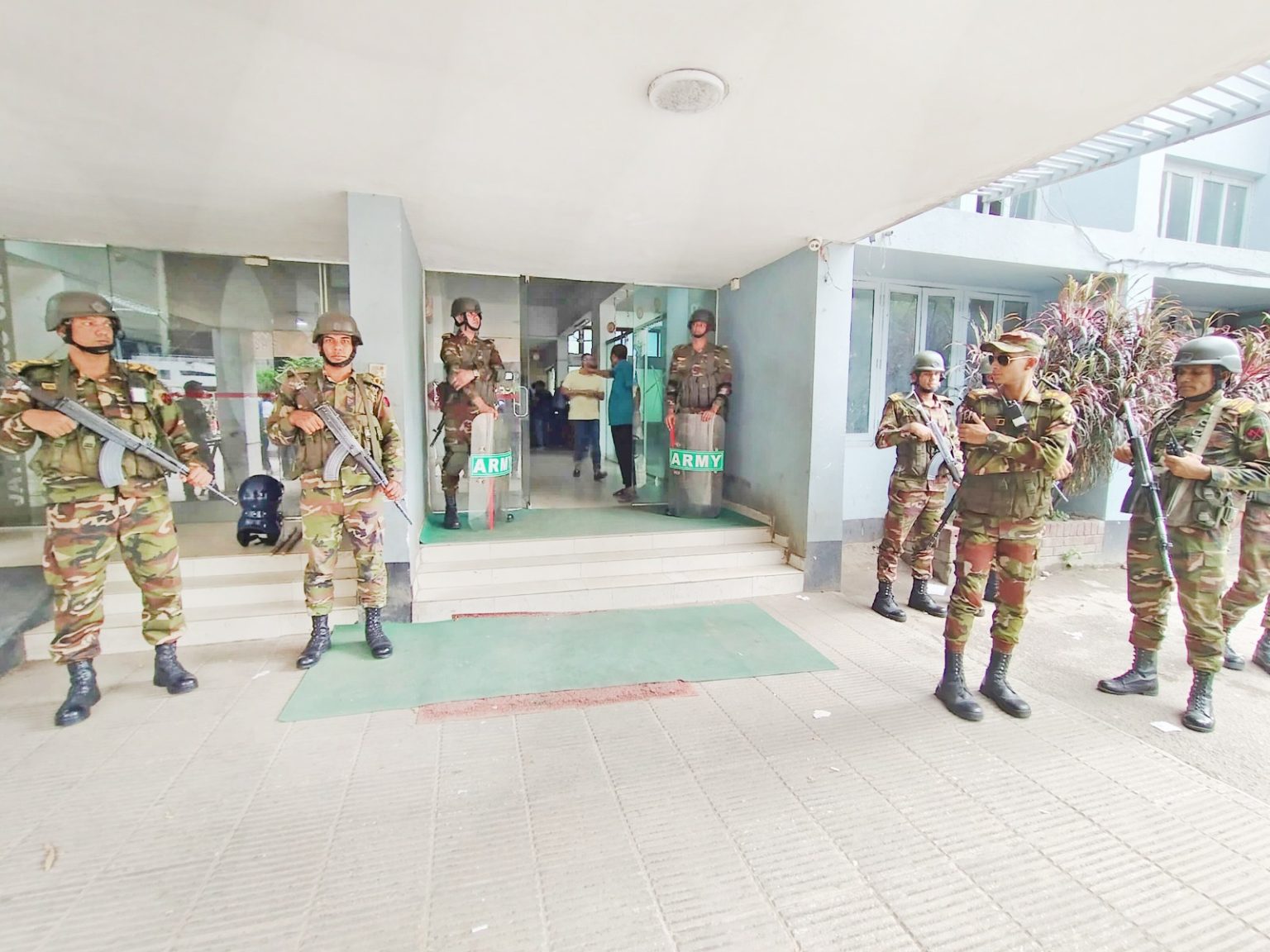The streets of Dhaka have turned into a stage of relentless agitation, as daily protests by various groups continue to paralyse the capital. From students to dismissed military personnel, and even banned political activists, the city is seeing a dramatic rise in civil unrest.
Just as Jagannath University students ended their protest over unmet academic demands, supporters of mayor-designate Ishraque Hossain laid siege to Nagar Bhaban, urging the interim government to allow him to take oath as the elected mayor of Dhaka South City Corporation.
Their demonstration entered its third consecutive day on Sunday.
In a rare move, a group of dismissed army personnel also gathered outside the National Press Club, demanding reinstatement into service.
Their demonstration coincided with a sit-in by Jatiyatabadi Chhatra Dal (JCD) activists in front of Shahbagh Police Station, calling for the arrest of those responsible for the killing of their leader, Shahriar Alam Shammo.
The JCD, student wing of the opposition Bangladesh Nationalist Party (BNP), has threatened to escalate further by surrounding Jamuna, the official residence of Chief Adviser Muhammad Yunus, if their demands remain unmet.
“Dhaka is, in all likelihood, a minefield; something is exploding somewhere every day,” wrote one netizen, capturing the city’s charged atmosphere in a viral social media post.
Referring to a daytime rally by Awami League loyalists, he remarked: “Once they marched under the cover of night; now they do it in broad daylight. Just a week after being officially banned, this bold public display is bound to raise alarms in the corridors of power.”
The dismissed armed forces members, most of whom were either terminated or forced into retirement during the previous regime, are demanding reinstatement, payment of salary arrears, and other service-related benefits. Witnesses said demonstrators, accompanied by family members, gathered at the press club around 11am, voicing a four-point demand.
Their movement gained urgency following the arrest of Naeemul Islam, the chief coordinator of the Bangladesh Comrade Platform (BCP), and a dismissed soldier.
His release is now central to the protesters’ demands. The Inter-Services Public Relations Directorate (ISPR) confirmed that Naeemul had been discharged eight years ago for allegedly planning a “major act of sabotage” and has now been rearrested on similar charges.
Meanwhile, in Shahbagh, the JCD activists blocked one of the city’s busiest intersections from 3:45pm to 5:30pm, demanding justice for Shammo’s killing.
“They left peacefully after their symbolic protest,” said Shahbagh Police Station officer-in-charge Khalid Mansur.
Elsewhere, supporters of Ishraque Hossain continued pressing for his formal installation as mayor.
The protests come amid continued pressure from National Board of Revenue (NBR) officials, who entered the fourth day of their “pen-down strike,” demanding the revocation of a recent ordinance that dissolves the NBR and replaces it with two separate bodies.
Despite a government ban issued on May 12 prohibiting all activities of the Bangladesh Awami League and its affiliated organizations pending trials at the International Crimes Tribunal, the party’s supporters staged demonstrations in over 30 locations across Dhaka.
Police arrested at least 11 activists who attempted to enter the party’s former headquarters at Bangabandhu Avenue, now renamed Abrar Fahad Avenue. According to Joint Commissioner of the DMP Detective Branch (South and Admin) Mohammad Nasirul Islam, “They had gathered for a procession. None were allowed inside, and they were taken into custody around 5:30pm.”
With every passing day, the capital’s political pressure cooker seems ready to blow.


